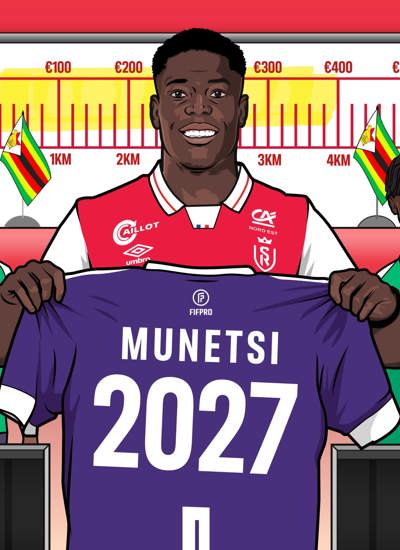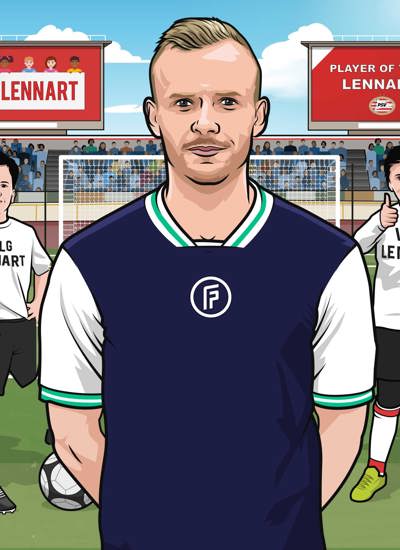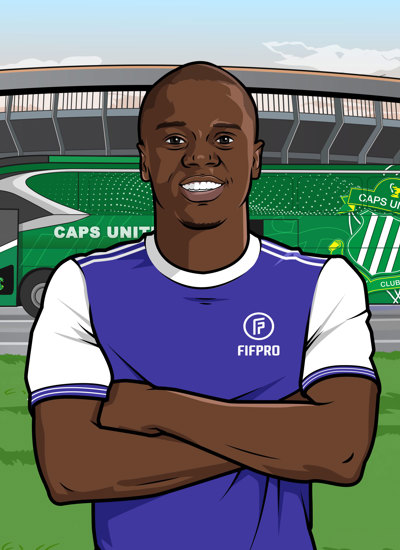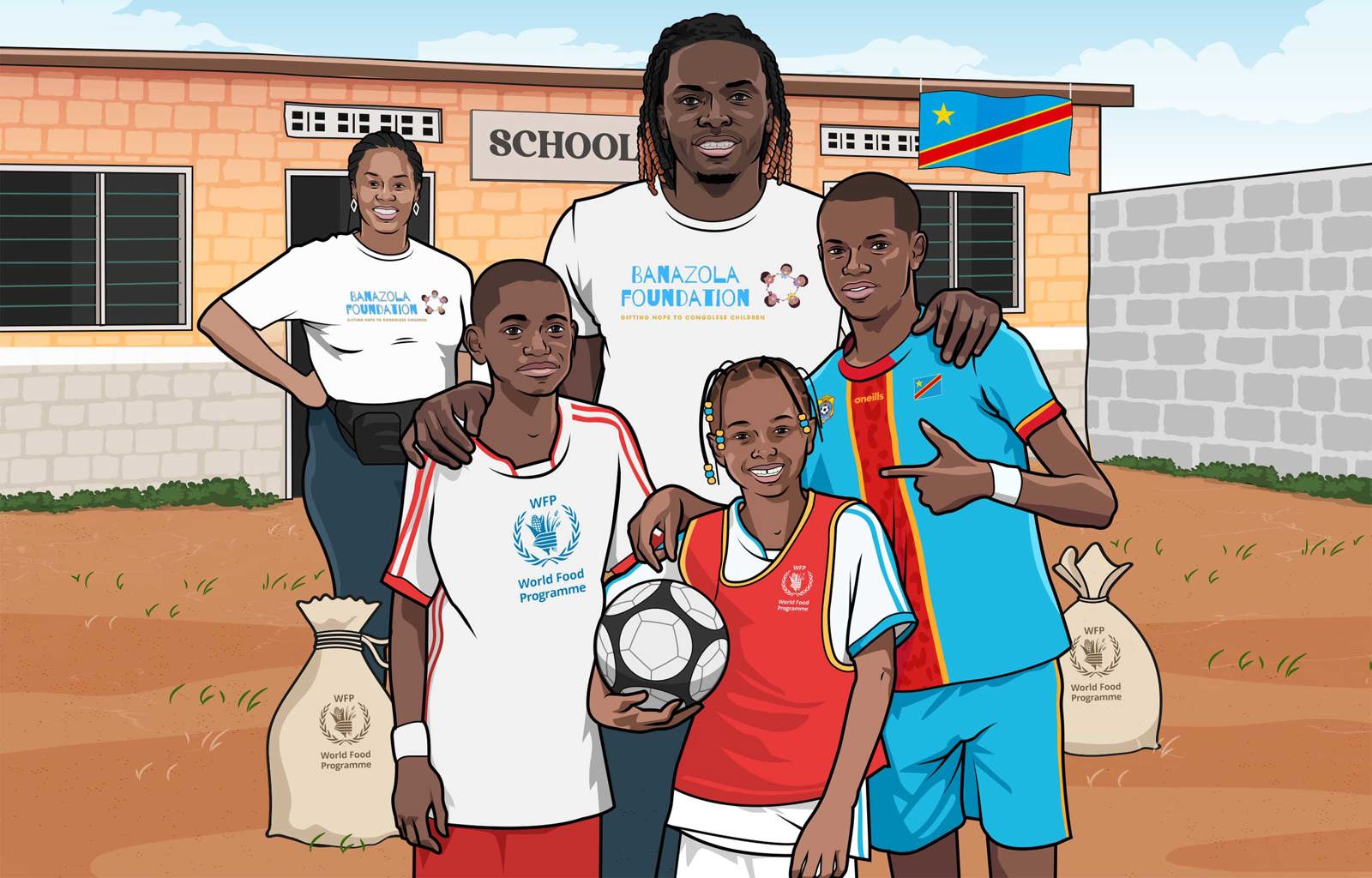
Former DR Congo international Distel Zola joined World Food Programme in May to promote better nutrition in the country. The 34-year-old ended his playing career to concentrate on the Banazola Foundation that he started with his wife Lorraine Lemaire, to give Congolese children from deprived backgrounds a better future.
By Distel Zola
I grew up in the boroughs of Paris and had to work very hard for everything I achieved. It was not easy. Even when I was taken into the AS Monaco academy, it was not given to me. I had to fight for those opportunities to make a career out of football.
My wife also did not have it easy. She lost her parents when she was very young. She was born in Namibia, where her father worked as a humanitarian aid worker. Lorraine then went to Paris with her mother, but her mother died and she was raised in a foster home. The synergy of our histories prompted us to create Banazola in 2021.
This resolve to start the foundation was also strengthened from playing in Kinshasa, the capital of DR Congo, and seeing the youth on the street and witnessing them in poverty. We wanted to give something back to the community after seeing the kids without parents. We felt that we could use sports to help them.
The initial goal was to create an emergency structure. Then we started to renovate a school in Kinshasa, and now we are also working with an orphanage. We use sport for the sensibilisation of the youth and to give them the tools to have a better future.
We have a strong team on the ground in Kinshasa as we are not there all the time. We travel to the country every three months or so. Sometimes we both go, at other times only I will go or only Lorraine. We have three children and we always have to organise around them.
Last year we organised a tournament with AS Monaco. The World Food Programme (WFP), which has been supporting us for some time, was also involved. The tournament focused on sport and nutrition. We wanted to give young people the tools that would equip them to have a better life.
Sport teaches young people values such as integrity and confidence. Nutrition is a very important aspect of a good life and that is why the WFP is involved.
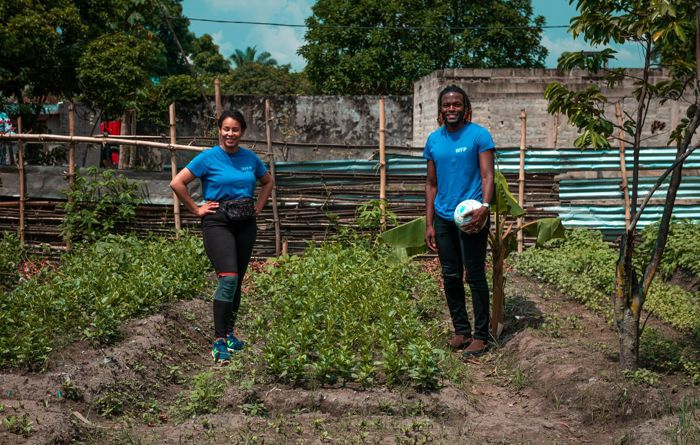
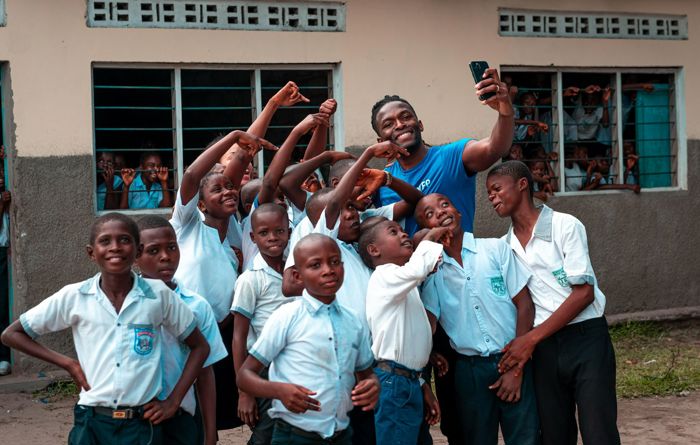
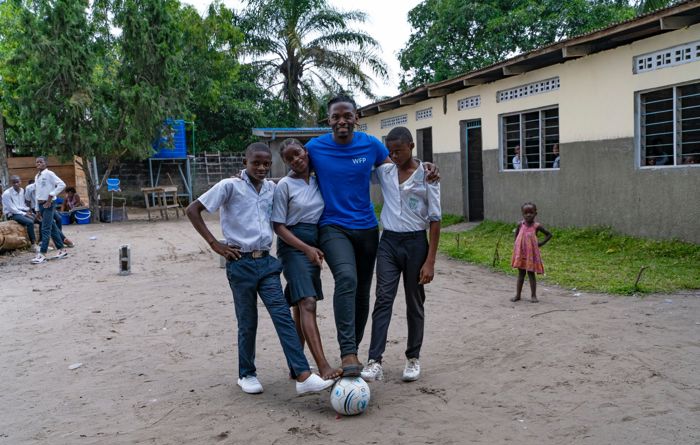
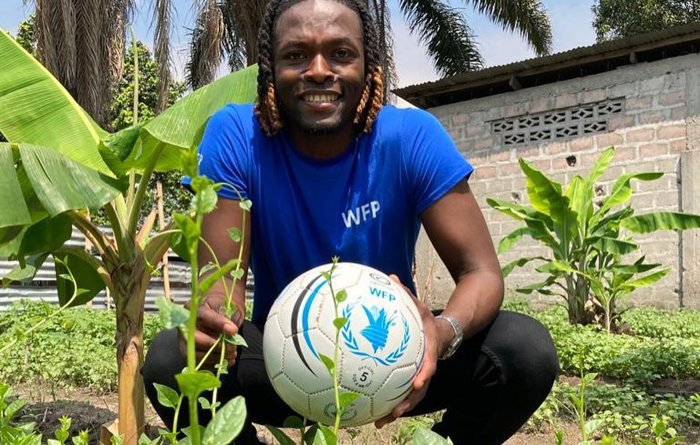

When the WFP said this year that they wanted to sign me as a High Level Supporter, I did not hesitate to accept. I have long-championed the need for young people to choose healthy food; I have seen first-hand how school meals benefit children and their families. As a father, I know how important a nutritious diet is for our children to learn and stay fit.
As a former footballer, I can use my platform to talk about the need for better nutrition, and also about the work that the WFP does in DR Congo. The WFP is working on school-feeding programmes and the objectives are that by 2030 most of the country will be covered, so that no children should be hungry in school. I am delighted to be working with WFP in DR Congo and hope to make a difference.
I have been very fortunate that I have been able to enjoy my career. I played in three different countries, on two continents. When I was at Le Havre, I played with some fantastic players – including Riyad Mahrez and Romain Saïss.
The highlight of my career, though, was playing in front of 90,000 fans in Kinshasa for the DR Congo national team. I also played for the French national youth teams and travelled a lot with them. Seeing all these different countries, I learnt that the environment is different everywhere. Witnessing life in these places has opened my vision and has encouraged me to try to change things. When I started my career I was a football fanatic, but seeing many other things, I realised that there is more to life than football.
Being able to travel is a very fortunate thing. When you grow up in the neighbourhoods of Paris, you see that things are difficult. And if you don't have the opportunity to go overseas, you think everything is the same. But they are not. In Japan, for instance, you can see the discipline the people have for work. In Africa, you see the warmth of people. So, all places are different. Having been able to travel has given me the opportunity to experience different cultures.

Football has given me a gift. In fact, it has given me many gifts. One of my children was born in the US. When I was young, I could never have dreamt of having a child born in America. That happened because of football.
All the opportunities I have had, I had because of football. And I want Banazola to give back to my community and to give opportunities to young people, to give them the tools to develop and make the best of their lives. Maybe one day they can be a superstar or a normal person. It does not matter, as long as they are happy.
I would like to see Banazola continue to grow and hopefully become a huge NGO that can exist even when Lorraine and myself are no longer around. We have already assisted more than 500 children. It is not an easy task, as we are dependent on donations. When I was playing in the US, it was easier as the mentality of Americans is to give back to the community. Now that I am back in France, it is more difficult.
Possibly other players can become involved, maybe even through the players’ unions. The unions have a very important role to play for every footballer. When I was in the US, I was involved in a dispute with an agent who was representing me, as well as the coach of the club for which I was playing, and it became an issue when the coach no longer wanted me to play in his team. I spoke to the union (French player union UNFP) and they helped me a lot to manage this situation because it was difficult to fight against your club and to fight against your coach. But when you are in the right, you need peace, and the union helped me.
FIFPRO's Community Champion series highlights a professional footballer’s activities that positively impact the lives of others. Discover more HERE.
